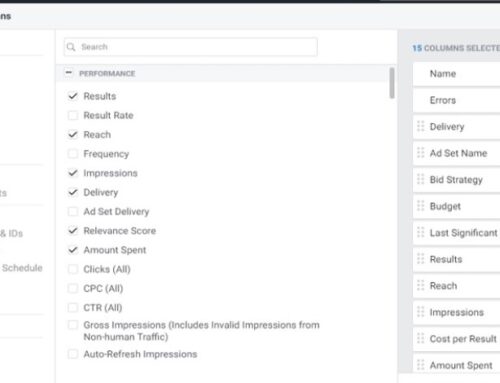The end of Broad Match Modifier
Google Ads has decided to bring an end to the long-running Broad Match Modified (BMM) keyword. Traditionally, BMM keywords allow advertisers to select exclusively which keywords should appear before triggering their ads. It’s not the most concise but it’s second in “looseness” after broad match. Which can basically match you with anything within or outside your keyword range.
BMM terms that you designate with “+” can match to any part of a search or other words with similar meaning. Additional words may appear in the search before, after, or in between your “+” terms.
For example +men’s +running +shoes, your ad will be served for users searching for “cheap running shoes for men”, “long-distance running shoes men”. As long as all the words on BMM is inside the query or similar meanings of the keywords is used.
But as Google’s machine learning algorithm gets smarter by the day, and continually phasing out additional updates to their keyword match types. Exact match types lost their meaning, it slowly got more relaxed. Your keywords don’t have to be exact anymore, as long as the meaning is the same. Broad Match Modifier and Phrase Match start becoming so similar that now Google is calling it quits with BMM, also in effort to simplify the process of choosing keywords. Instead of 4 match types, now advertisers can choose from 3.
Click here to learn everything about keywords.
The merge of BMM into phrase match
Direct quote from Google:
“Starting in February 2021, phrase match will begin to incorporate behaviors of broad match modifier (BMM) to simplify keywords and make it easier to reach relevant customers. With this change, both phrase and broad match modifier keywords will have the same matching behavior, and may show ads on searches that include the meaning of your keyword.
This also means that the new matching behavior will consider word order when relevant to the meaning. For example, the phrase match keyword “moving services NYC to Boston.” will continue to cover searches like “affordable moving services NYC to Boston.” It will also cover searches that traditionally only matched under broad match modifier, such as “NYC corporate moving services to Boston.” Phrase match won’t show ads for searches where the direction is reversed (for example, people looking to move from “Boston to New York City”).”
What should we make out of this?
Personally, I see it as a good thing even though most advertisers may disagree. Advertisers no longer want to build a large list of excel sheets housing keywords, and we have come a long way from there.
Machine learning has become much more reliable now that it’s safer than ever (if you don’t have a conservative budget) to just leave an ad group with all broad matches running alongside smart bidding. In the past, advertisers would call it “suicide”. Google’s algorithms now understand better than ever what we humans want, they can deliver the relevant results to us and we don’t have to be so uptight with the keywords matching.
What we all want is maximum profitability and if what we want is the correct leads coming in, and Google is giving us all that, then what is the problem?
It is important to remember that machines are getting smarter by the day, it has surpassed human capabilities in many aspects (Smart bidding, DSA, RSA, Smart Shopping Campaigns), coupled with abilities to compute and find patterns within millions of data points of your customers. As long as machines are helping humans to achieve our goals, we must be accepting and be willing to adapt.
A book I recommend to read for PPC advertisers will be Digital Marketing in an AI World by Frederick Vallaeys.
Advertisers need to stop being afraid and start being proactive while understanding the broad picture of the advertising landscape. Don’t look at changes as “Bad, Negative!” but
1) Why it is happening and;
2) How can it benefit us the advertisers.





